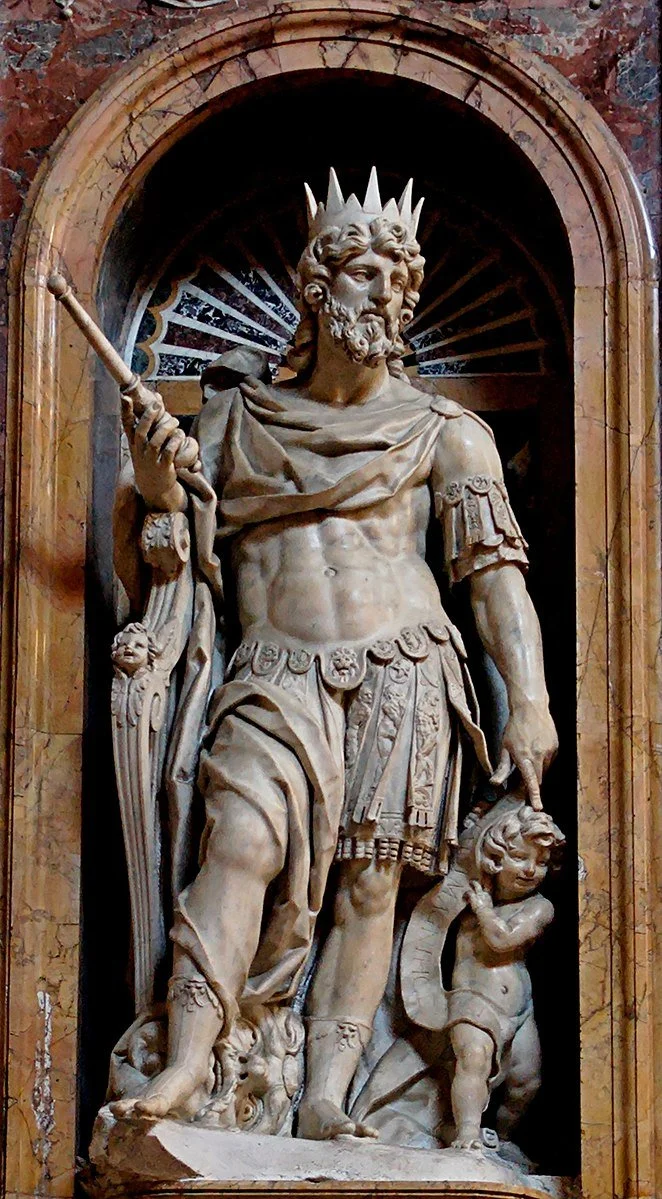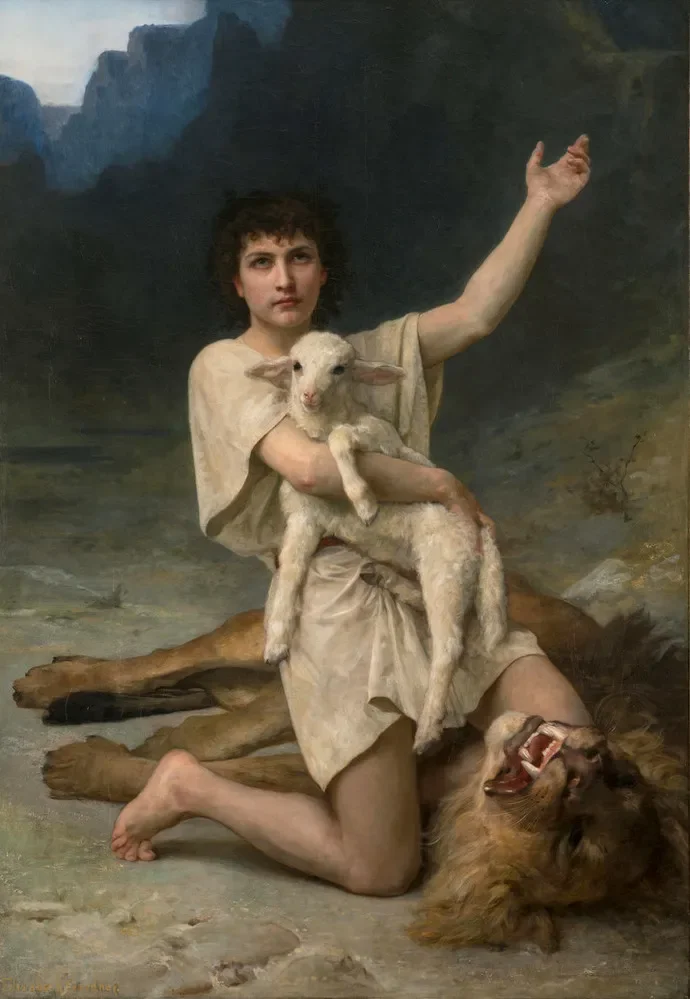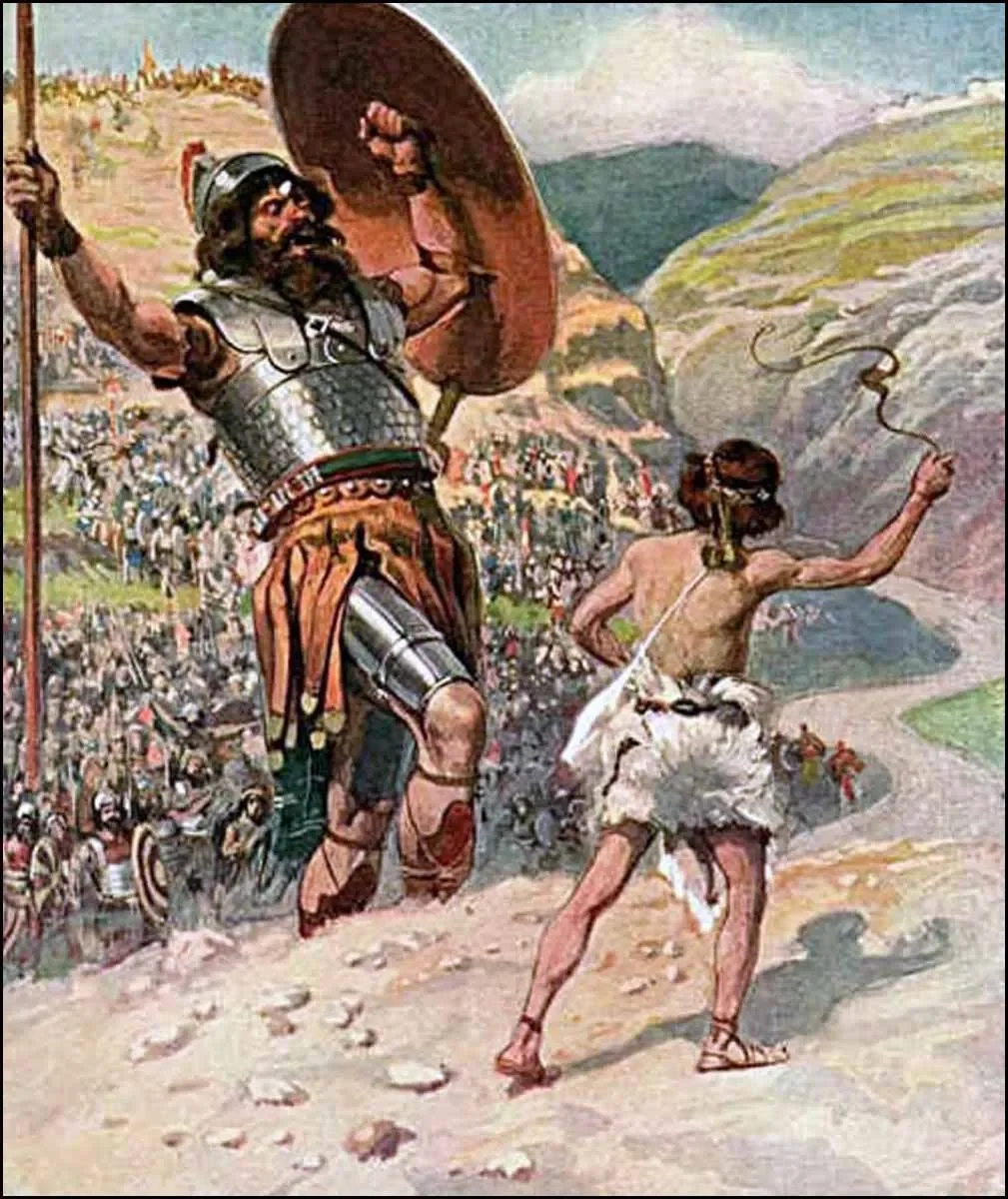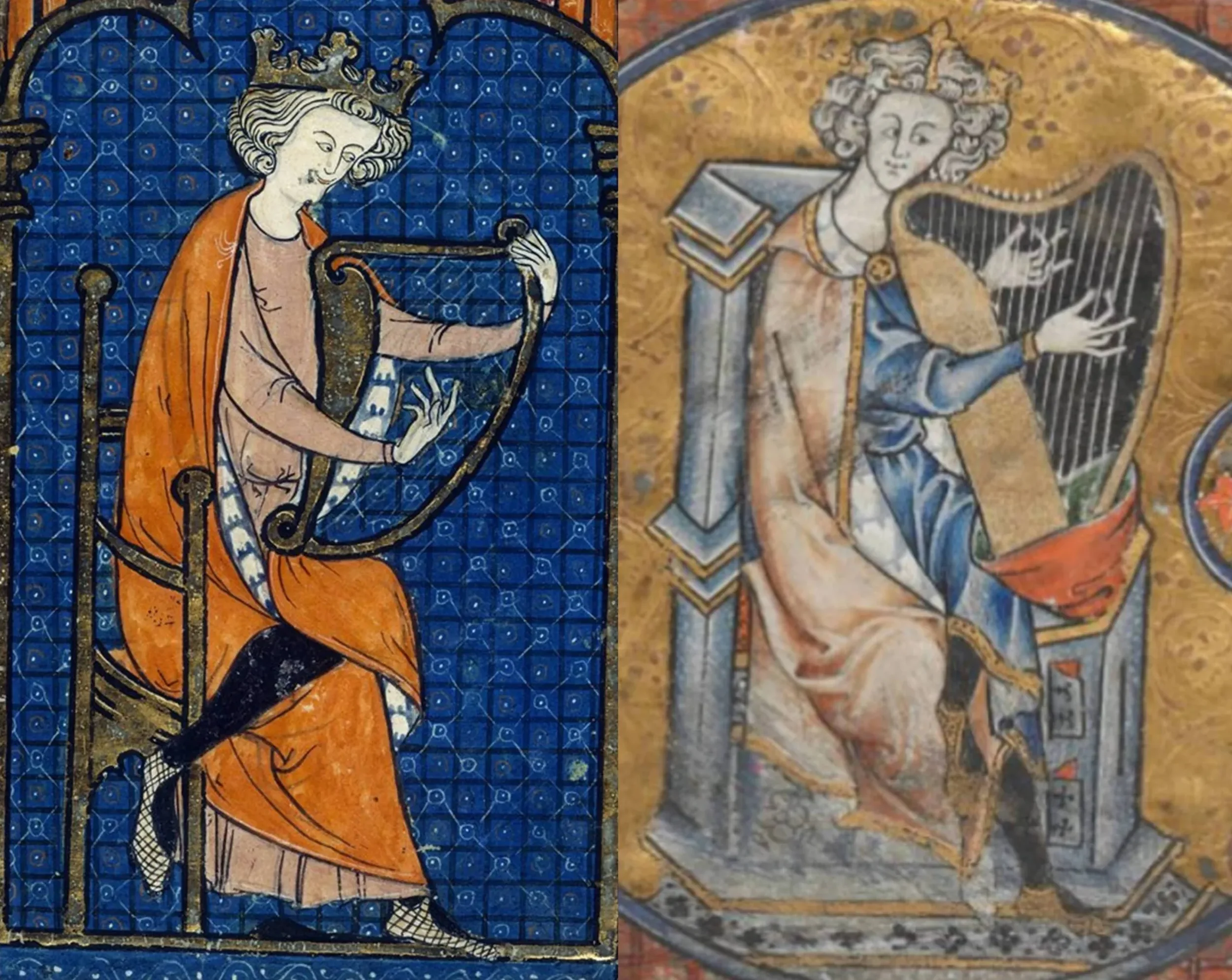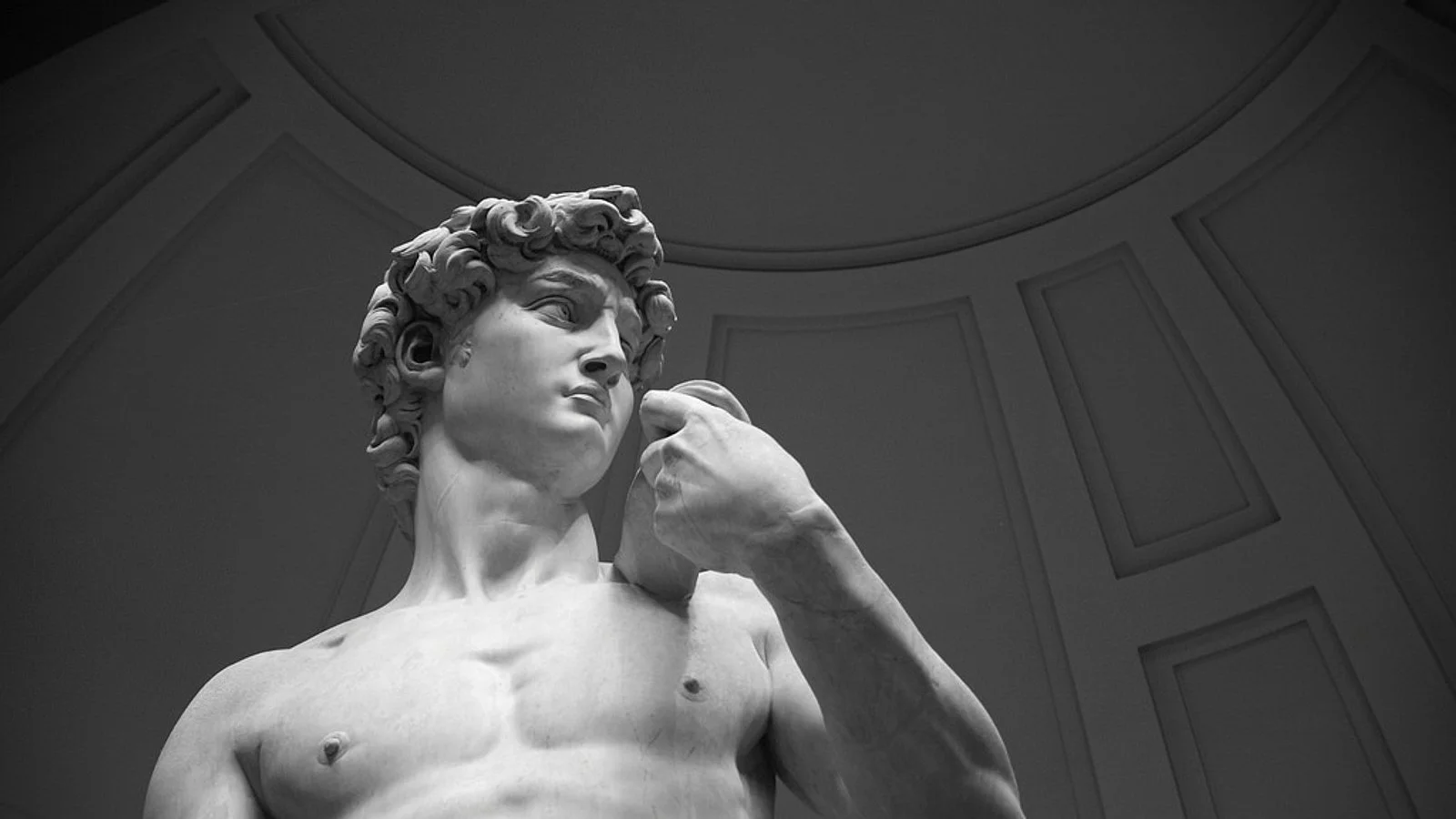
King David: From Shepherd to King
King David (c. 1040–970 BCE) is one of the most significant figures in Jewish history. Rising from a humble shepherd in Bethlehem to become the second king of Israel, David united the tribes, established Jerusalem as the capital, and left a lasting legacy in leadership, faith, and culture. His life is a story of courage, wisdom, and devotion.
Early Life (c. 1040–1025 BCE)
David was born in Bethlehem, the youngest son of Jesse of the tribe of Judah. As a shepherd, he tended his family’s flocks and developed skills in courage, strategy, and music—skills that would serve him throughout his life.
One defining moment of his youth was his battle against Goliath, the Philistine giant (c. 1025 BCE). Armed only with a sling and a stone, David’s victory demonstrated his faith, courage, and resourcefulness, bringing him national recognition.
Service Under King Saul (c. 1025–1010 BCE)
Following his victory, David entered the service of King Saul as both warrior and musician. He became a beloved figure in Israel but also aroused Saul’s jealousy. After years of conflict and exile, David’s patience, faith, and leadership matured as he learned to navigate loyalty and survival.
Ascension to Kingship (c. 1010 BCE)
After Saul’s death, David was anointed king—first over Judah in Hebron (c. 1010 BCE) and later over all Israel (c. 1003 BCE). He reigned for about forty years (c. 1010–970 BCE). David unified the twelve tribes, strengthened the kingdom, and brought stability after years of warfare.
One of his greatest political achievements was capturing Jerusalem and making it the capital of Israel (c. 1000 BCE). He also brought the Ark of the Covenant there, establishing the city as both a political and spiritual center.
David as a Poet and Musician (Throughout His Life)
David was not only a warrior and leader but also a gifted musician and poet. Many of the Psalms in the Hebrew Bible are attributed to him. His songs express the full range of human emotion—joy, gratitude, sorrow, repentance—and reflect his deep relationship with God. Through his poetry and music, David connected intimately with his people and laid the foundation for Jewish spiritual expression.
Legacy and Lessons (After c. 970 BCE)
David’s reign ended around 970 BCE, succeeded by his son Solomon. His life offers timeless lessons:
Courage – Facing challenges with faith and determination.
Leadership – Balancing strength with humility and justice.
Expression – Using creativity and music to connect with the divine and with others.
Perseverance – Rising from humble beginnings to achieve greatness.
Conclusion
King David remains a central figure in Jewish history, revered for his leadership, devotion, and creative spirit. His story continues to inspire reflection on courage, responsibility, and faith.
Suggested Resources
-

Psalms
-

Jewish virtual library
-

